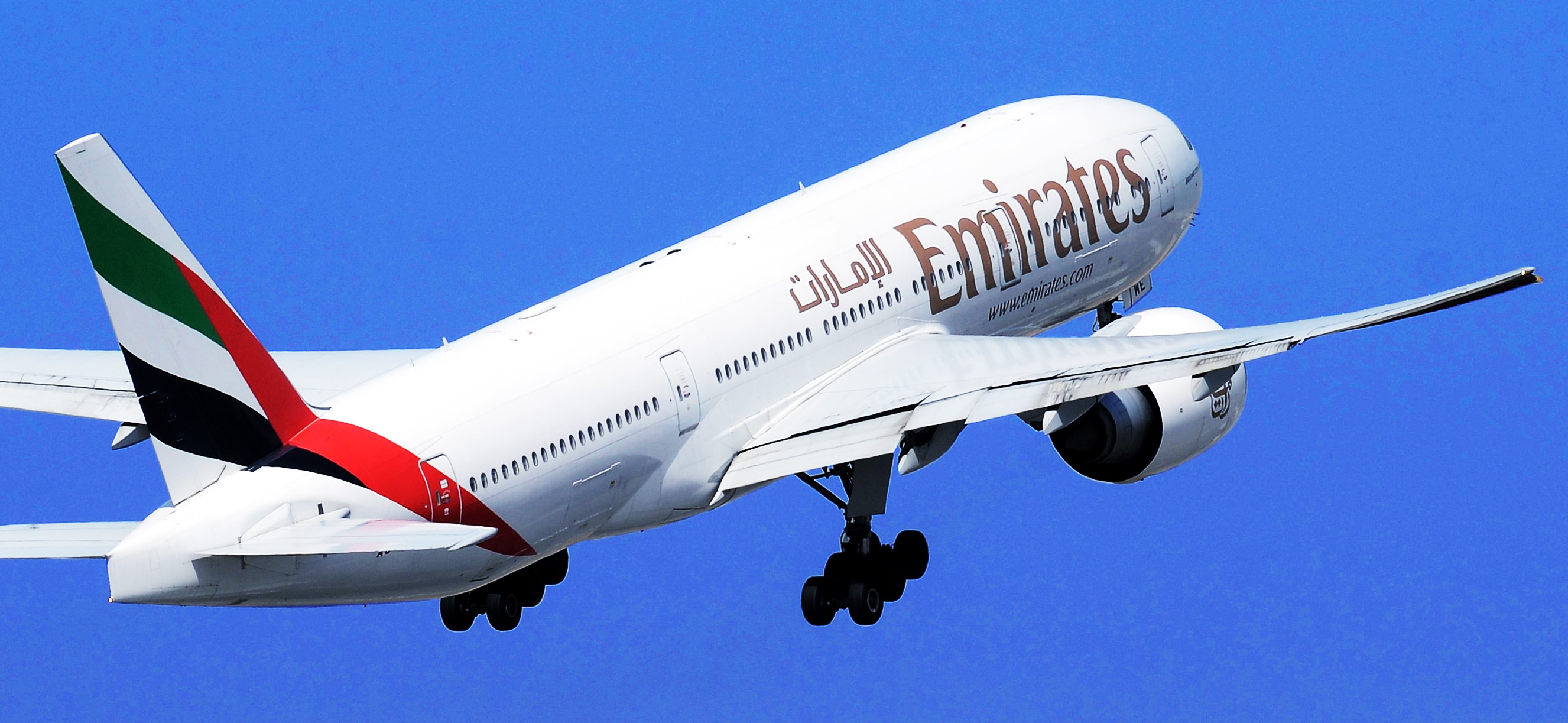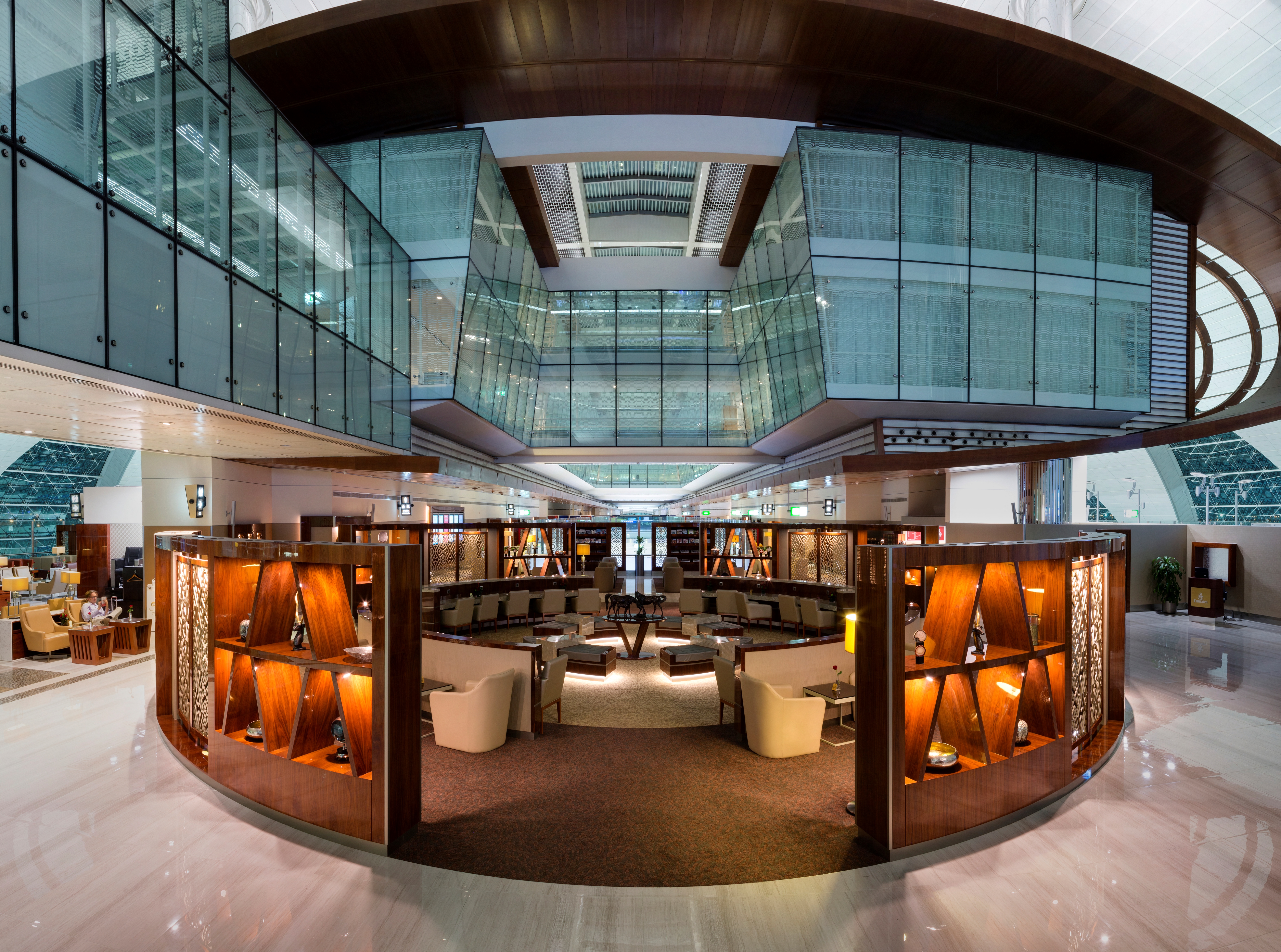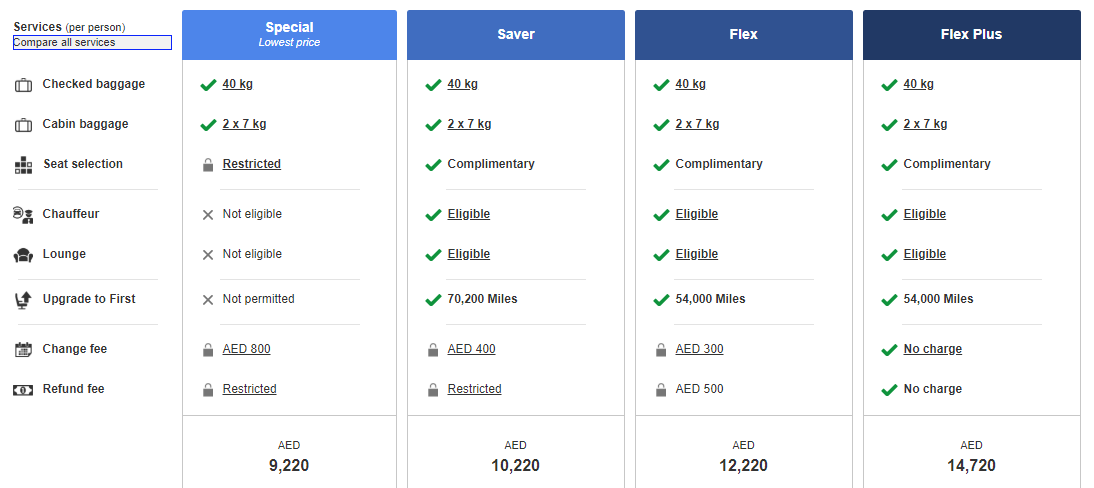The menu is clear. We pay for a seat, then choose what additional services we require - more legroom, a checked-back, an additional cabin bag, lounge access, priority boarding, a meal are just some of those options available to us. When travelling in the economy cabin the product appeals to the cost-conscious traveller, even successfully transferring from the short- to long-haul market with the introduction of hand baggage only fares in recent years.
The à la carte ancillary offer has significant benefits to travellers. Many business travellers flying short distances or with restrictive corporate travel policies are happy to travel in economy, without the cost burdens of checked baggage and meals etc and can offset those costs perhaps for paid lounge access instead. But, can the same be said for those travelling in the front of the aircraft in the business class cabin, where frills are part of the expectation.
Experience shows that while consumers are more willing to accept what the basic air fare now provides them on an LCC, it remains hard to change the mindset when the same principles are adopted by legacy airlines. British Airways faced significant complaints after dropping its complimentary short-haul inflight service for an optional paid offer, while there has been an unpopular response to the new basic economy fares introduced by the majors in the United States of America (USA).

But, these examples continue today, successfully, according to data provided by the airlines concerned. So should we really be surprised by the news that Emirates Airline is adopting a similar unbundling concept for its business class tickets. After all, isn't it all just a matter of choice and delivering a more personalised service for customers?
The United Arab Emirates (UAE) carrier earlier this year introduced new categories across its economy fares that has seen baggage allowance reduced among the cheaper options. For its cheapest 'Special' fare offer that takes checked baggage down to just 15kg per passenger, a significant reduction versus the generous 30kg and 35kg rates available on the 'Flex' and 'Flex Plus' options.
Emirates argues the adjustment enables customers more flexibility to select the fare and associated benefits that best meet their travel needs. The same concept is behind the business class fare changes and the introduction of a new 'Special' fare alongside its 'Saver', 'Flex' and 'FlexPlus' options.

Whilst delivering cost savings for the same business class seat, customers booking at the 'Special' fare rate will not have lounge access; will not gain a chauffeur drive to and from the airport; will face restricted seat assignments until check-in has opened; cannot use miles to upgrade; and will receive reduced loyalty mileage, earning the same rates as economy 'Flex Plus' passengers.
From the outside it would seem that Emirates is effectively creating a new product between its economy and business class offering and attempting to entice travellers to book upwards through with the cheaper offer. However, the airline says it still plans to debut a premium economy cabin in 2020. This unbundled business class fare will ultimately sit between premium economy and the full business class offer and provide a comfortable spacious seat without some of frills of travelling business class.
IMAGE - This mock booking by The Blue Swan Daily for a return Emirates business class ticket between Dubai and Sydney in Aug-2019 displays an almost 10% saving in price by booking at the 'Special' fare rate Source: The Blue Swan Daily
Source: The Blue Swan Daily
Some of the fare restrictions will certainly not put off many travellers seeking more comfort, while it could ultimately encourage others to book at higher rates. The removal of lounge access may not impact regular travellers that may be able to access an Emirates lounge on account of their status or use an alternative facility through company schemes or card providers, but could start a new shift in the industry.
It is too early to see how the market responds to these changes. Whether this is a revolution or simple evolution remains to be seen. What is for sure, it highlights that no part of the airline system is immune from disruption. It just sometimes requires a bold decision by airline management to take an alternative path and abandon those risk-averse strategies that have dominated airline boardrooms for so long.